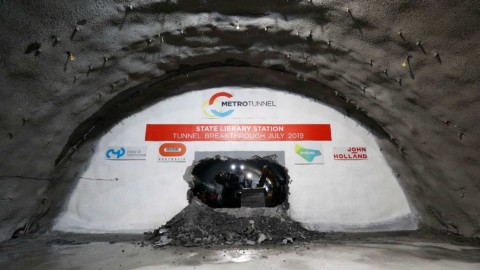The heavy vehicle industry has partnered with the Federal Government to enable the first in a series of on-road trials designed to test potential direct road user charging options for heavy vehicles.
Deputy Prime Minister and Minister for Infrastructure, Transport and Regional Development, Michael McCormack, said that while no decisions have been made to change the way heavy vehicle charges are currently collected, the first stage of the National Heavy Vehicle Charging Pilot will provide a way to test potential alternatives, well ahead of any decisions being taken.
“The heavy vehicle on-road trials will be delivered as part of broader Heavy Vehicle Road Reform, which is about creating stronger links between road usage, charges and services for road users.
“The Government will continue to prioritise progress on reforms to improve infrastructure investment, while testing alternative options to replace heavy vehicle registration fees and fuel-based charges.
“Decisions to implement a new way of collecting heavy vehicle charges may be part of a potential future stage of Heavy Vehicle Road Reform. These decisions are likely to be a number of years away and will take on board the real-life experience of industry following a full evaluation of the trials.
“In progressing this reform, the Australian Government will retain a focus on making sure regional roads get a fair share of investment. I encourage operators of all sizes across the sector, particularly those from regional areas to be involved in the trials.”
Assistant Minister for Road Safety and Freight Transport, Scott Buchholz, said that the initial Small Scale On-Road Trial will not involve payment of charges and will assess an alternative form of heavy vehicle charging using mock invoices generated by on-board technology that measures the distance travelled by heavy vehicles.
“The trial will involve partnerships with up to eleven heavy vehicle operators of various sizes, totalling up to 111 vehicles.
“The Federal Liberal and Nationals Government is collaborating with the heavy vehicle industry, community stakeholders and all levels of government to gain a genuine understanding of a potential alternative system of heavy vehicle road user charging.
“Similar approaches to heavy vehicle charging reforms are being explored worldwide, including in Europe and the United States.”
Planning is also underway for a Large Scale On-Road Trial, the next stage of the National Pilot which will take place during 2020. Up to 100 businesses and 1,000 heavy vehicles are expected to be involved in this trial. It will not involve payment of charges and will test a wider range of alternative charging approaches.
Stakeholder engagement will continue during evaluation of the Small Scale On-Road Trial and planning for the Large Scale On-Road Trial. A recruitment campaign for the Large Scale On-Road Trial will begin over the coming months.
The Australian Trucking Association Chair, Geoff Crouch, said that this is a critical reform which will deliver a more productive road freight network and is something that the ATA has been a long-standing advocate for.
“As the Government takes the next step in considering change on heavy vehicle charges, they need to prioritise reforms on how roads are provided which is where the largest economic gains from reform will be found.
“We welcome the Government’s commitment to prioritise progress on reforms to improve infrastructure investment.”
Mr Crouch said that the ultimate test for the charging trials would be if they could demonstrate an overall net benefit for industry.
“For both the small-scale charging trial and the planned large-scale trial the ultimate test will need to demonstrate an overall net benefit for trucking operators.
“The Government should continue to engage and consult industry before launching the proposed large-scale trial.
“Ultimately, if governments don’t make real progress on supply side road funding reforms then there is no case for the charging trials to continue.”

















